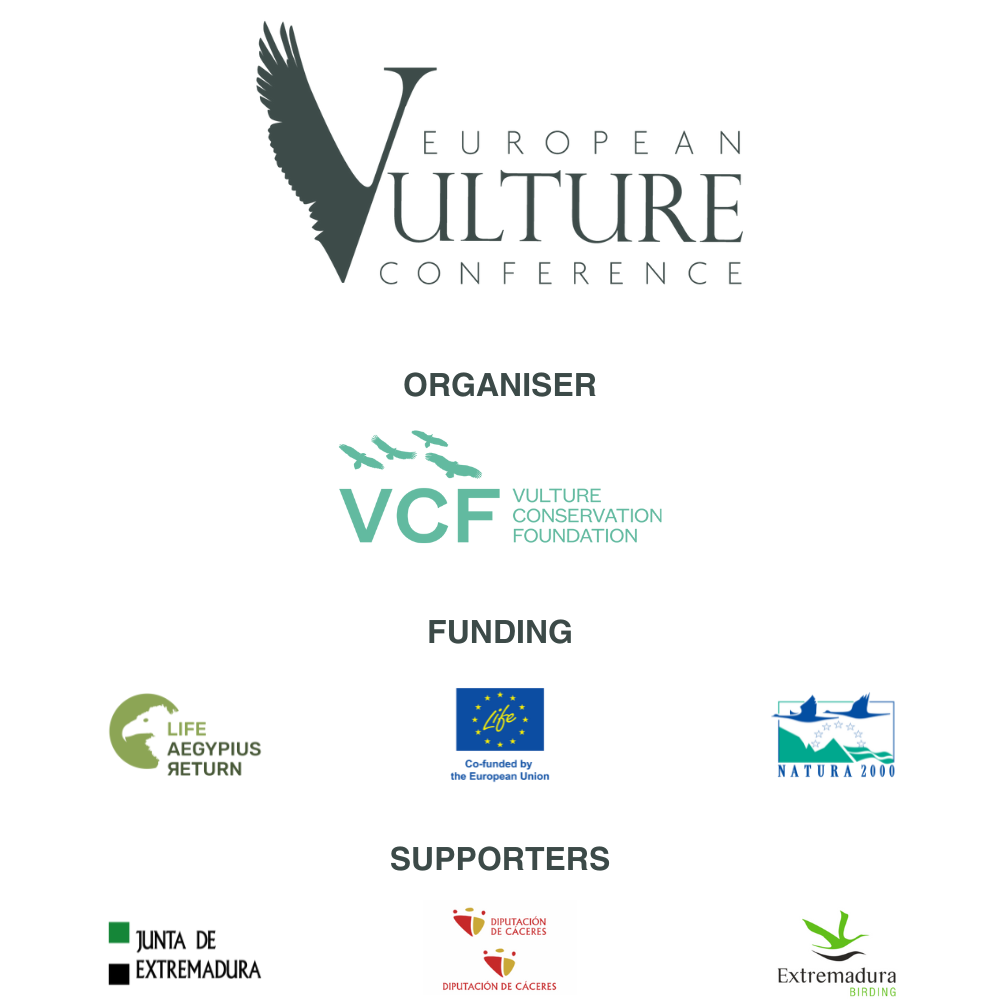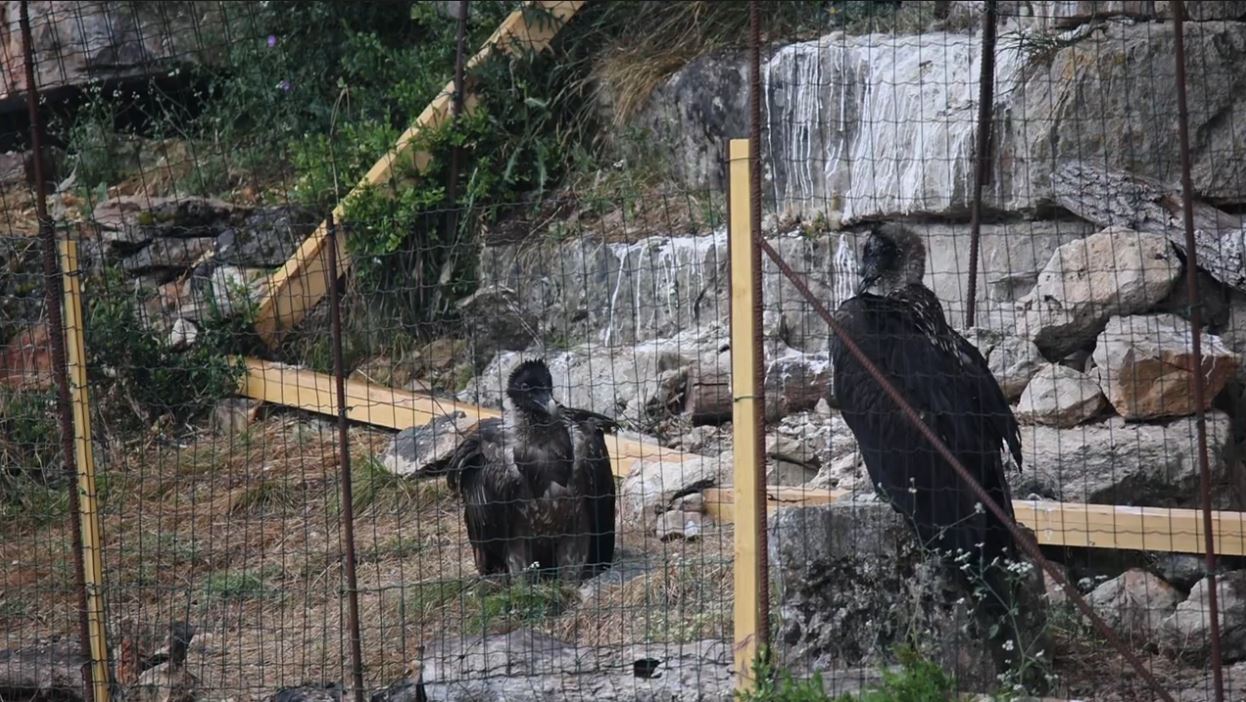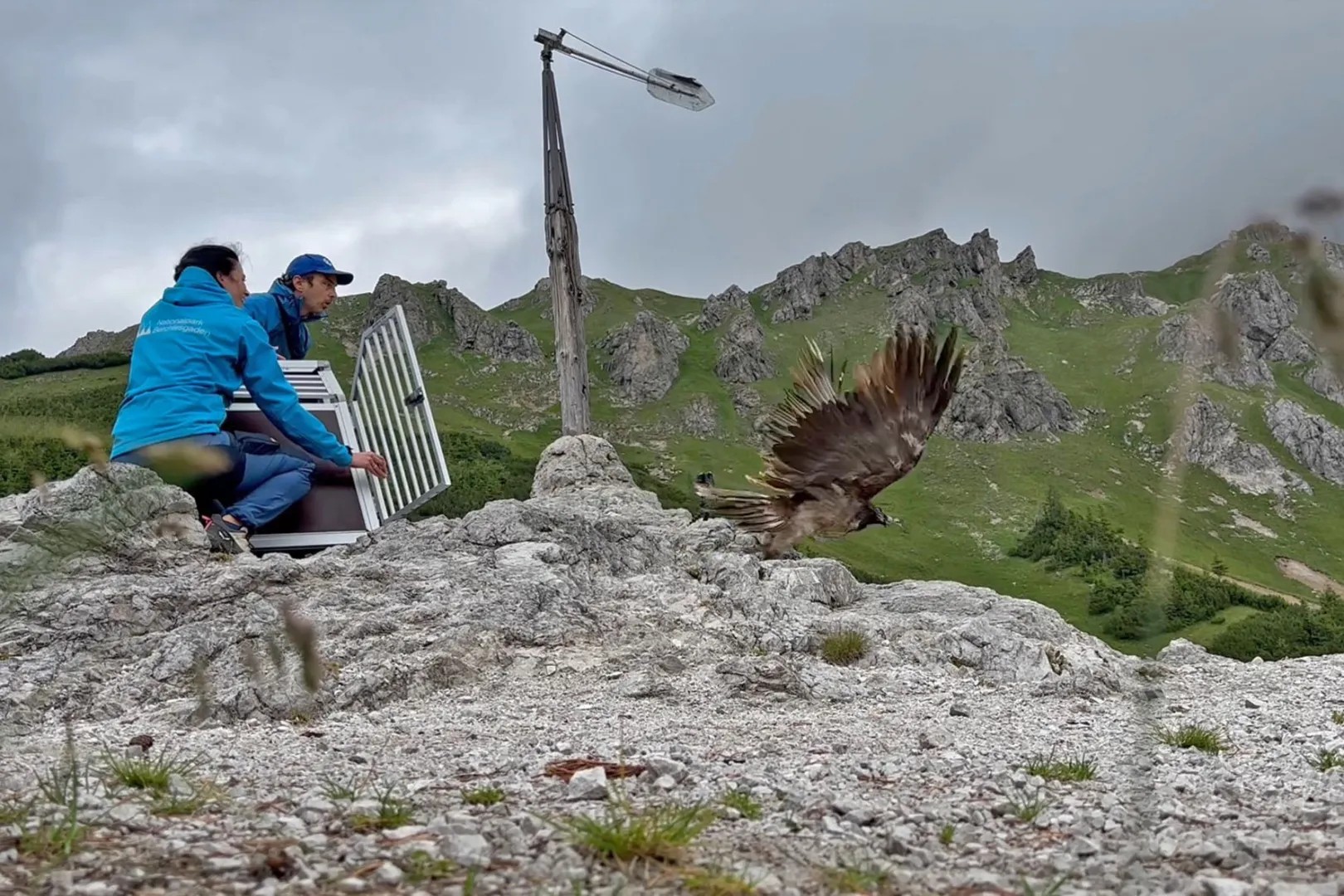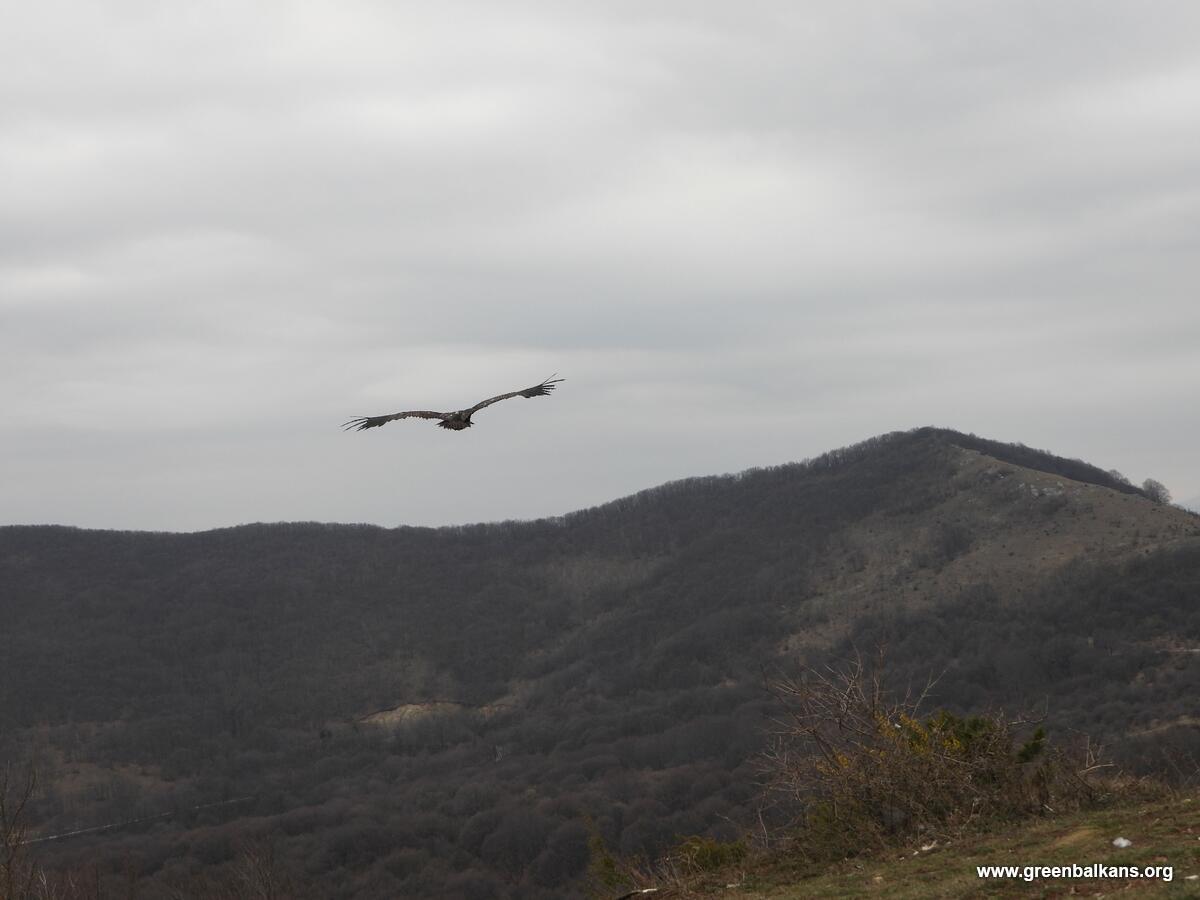In just two weeks, the European Vulture Conference in Cáceres, Spain, will bring together over 370 attendees from around the world for a unique international event dedicated to vulture conservation. Today, we are excited to reveal the complete conference programme, featuring a rich array of presentations, plenary talks, and parallel sessions highlighting the latest research findings, insights, and discussions on vulture conservation. Spain is home to the largest and most diverse vulture populations in Europe, with Cáceres, Extremadura, being one of the best regions to observe vultures. The field trips on the final Conference day will be an opportunity to explore the region’s diverse wildlife.

Will you be part of this remarkable gathering?
The conference starts on Tuesday, November 14, with registration beginning at 8:00 a.m. Be sure to download the entire programme and confirm your choice of the field trip you wish to attend.
European Vulture Conference: Programme day by day
Day 1 – 14 November, Tuesday
Welcome Session
The European Vulture Conference begins at 10:00 a.m. on Tuesday, 14 November. The welcome session will immerse us in the world of vulture conservation, offering perspectives at both local and national levels and insights into conservation efforts throughout Europe.
Junta de Extremadura will shed light on the primary challenges and regional conservation actions, while MITECO (Ministry for Ecological Transition and Demography) will provide an overview of vulture conservation initiatives at the national level. To wrap it up, José Tavares, Vulture Conservation Foundation (VCF) director, will take us on a journey across Europe, sharing the latest updates on population dynamics, restocking efforts, and ongoing conservation projects.
Plenary Session
- Sergio Lambertucci will lead us on a journey beyond Europe. We’ll delve into the challenges facing Neotropical vultures as Lambertucci sheds light on “Old and New Threats,” particularly the struggles of the Andean condor and other vulture species.
- Olivier Duriez and Julien Hirshinger will provide valuable insights into the 2022 H5N1 Outbreak and its impact on the Griffon Vulture population in France. Of the 59 Griffon Vultures that passed away in 2022, 70% succumbed to avian influenza (LPO Grands Causses, 2023).
- Jovan Andevski, VCF Vulture Programmes Manager, will focus on the Wildlife Crime Academy and how it empowers national authorities and technicians in the fight against wildlife crime through capacity building and experience sharing.
Parallel Sessions
The afternoon is dedicated to poster presentations in parallel sessions, running concurrently in separate rooms. These 50-minute sessions are tailored to specific topics, providing you with the opportunity to stay updated on the latest research findings and project updates from the vulture conservation world. It’s the perfect opportunity to gather knowledge and inspiration while exchanging experiences with peers. Remember to download the provisional programme to get a glimpse of the main themes.
Day 2 – 15 November, Wednesday
Plenary Session
The Plenary Talks Session start at 9:00 a.m.
- Marcos Moleon Pais will delve into the long-standing connections between vultures and humans, tracing their historical ties in time.
- Pascual Lopez Lopez takes the stage, providing a movement ecology perspective on the primary conservation challenges and opportunities for migratory vultures.
- Katherine Steinfield will share insights on “Carrion Convergence: How Skull Shape Predicts Feeding Ecology.”
- Milene Matos, VCF Project Coordinator, will discuss the ongoing endeavours in Portugal and western Spain to strengthen the Cinereous Vulture population and improve the species’ conservation status from Critically Endangered to Endangered.
Parallel Sessions
Before lunch, there will be two rounds of 50-minute parallel sessions, co-occurring in three separate rooms. Authors will have 12 minutes in each session to present their findings, followed by a discussion with the attendees.
Poster Session
The afternoon session starts with a Poster Session, where authors will be close to their posters, eager to present their findings and engage in discussions with you. These posters will remain on display throughout the entire conference.
Speed Talks
Following the poster session, parallel sessions with speed talks will continue until the coffee break. Centered around specific subjects, authors will have 5 minutes each to share their key findings. After the speed talks, you can choose from two roundtable discussions – one featuring the IUCN SSC Vulture Specialist Group (VSG) and another focusing on “Addressing Vulture-Livestock Incidents.” Alternatively, you can attend a brief workshop that provides best practices and tools for crafting positive communications supporting vulture conservation.
Cultural Visit to Cáceres
In the afternoon you will have the opportunity to visit Cáceres, joining an organised cultural excursion.


Day 3 – 16 November, Thursday
Plenary Session
- Darcy Ogada will open the plenary session with a talk on the Causes of Vulture Poisoning, shedding light on the disproportionate effects and impacts on African and migratory European vulture populations.
- Jose Rafael Garrido López follows with a talk on Rüppell’s Vulture conservation along the Western Flyway.
- Keith Bildstein closes the panel with a forward-looking discussion on potential future advancements in vulture conservation.
Parallel Sessions and Speed Talks
Following the plenary session, we’ll have two rounds of 50-minute parallel sessions. After lunch, there will be another round of speed talks leading up to the conference’s final plenary session.
Final Plenary Session
- Franziska Lorcher, VCF Scientific and Conservation Coordinator, will provide an overview of Bearded Vulture Conservation.
- Luís Costa, from MAVA, will conclude the conference and share his personal insights on funding vulture conservation and the results achieved.
All attendees are invited to join a social dinner after the official closing session.
Day 4 – 17 November, Friday
The last day of the conference takes us outdoors, where we’ll explore the remarkable avifauna of Extremadura. It’s a fantastic opportunity to immerse yourself in the distinctive nature and culture of this vulture-abundant region. Throughout the day, there will be three field trips to choose from, each offering a unique opportunity to discover the beauty and diversity of the region.


Plan your trip

Visit the Conference website to get all information about how to get to the venue and other frequent asked questions. We look forward to seeing you in Cáceres!




